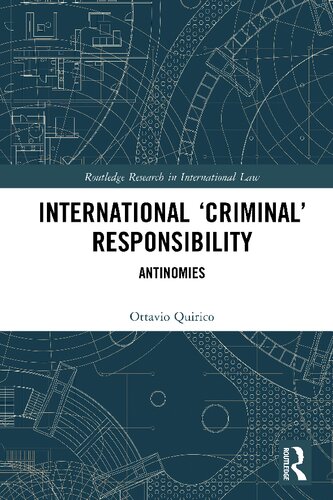

Most ebook files are in PDF format, so you can easily read them using various software such as Foxit Reader or directly on the Google Chrome browser.
Some ebook files are released by publishers in other formats such as .awz, .mobi, .epub, .fb2, etc. You may need to install specific software to read these formats on mobile/PC, such as Calibre.
Please read the tutorial at this link. https://ebooknice.com/page/post?id=faq
We offer FREE conversion to the popular formats you request; however, this may take some time. Therefore, right after payment, please email us, and we will try to provide the service as quickly as possible.
For some exceptional file formats or broken links (if any), please refrain from opening any disputes. Instead, email us first, and we will try to assist within a maximum of 6 hours.
EbookNice Team

Status:
Available5.0
11 reviewsIn the course of the 20th and 21st centuries, major offences committed by individuals have been subject to progressive systematisation in the framework of international criminal law. Proposals developed within the context of the League of Nations coordinated individual liability and State responsibility. By contrast, international law as codified after World War II in the framework of the United Nations embodies a neat divide between individual criminal liability and State aggravated responsibility. However, conduct of State organs and agents generates dual liability. Through a critical analysis of key international rules, the book assesses whether the divisive approach to individual and State responsibility is normatively consistent. Contemporary situations, such as the humanitarian crises in Syria and Libya, 9/11 and the Iraq wars demonstrate that the matter still gives rise to controversy: a set of systemic problems emerge. The research focuses on the substantive elements of major offences, notably agression, genocide, core war crimes, core crimes against humanity and terrorism, as well as relevant procedural implications.
The book is a useful resource for practitioners, policymakers, academics, students, researchers and anyone interested in international law and politics.